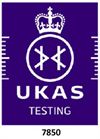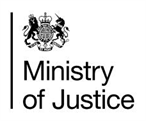Scientists working in DNA analysis @ King’s College London have been at the forefront of relationship testing for over 30 years and offer:
- Complete confidentiality and secure storage of samples and results.
- Friendly, experienced and approachable staff who will take time to explain the process.
- Full discussion, before you commit yourself, of the implications of taking a DNA test.
- Option of giving your sample at our nurse-run clinic,or having a sampling kit sent to a medical professional of your choice.
- Senior scientists all educated to Doctorate or Masters Degree standard.
- Duplicate testing in all cases, undertaken in our state-of-the-art laboratories.
DNA@King's (DNA analysis at King's College London) is an UKAS accredited testing laboratory No. 7850 and provides specialist forensic services in DNA analysis including complex kinship analysis, specialist low level forensic casework and forensic genetics including forensic phenotyping, geographic ancestry, canine breed identification and human age estimation. See Menu for further information.
 |
- UKAS 17025:2017 schedule of accreditation HERE
|
 |
- DNA@King's is accredited by the Ministry of Justice - approved providers of DNA testing HERE
|
Our expert team of scientists and professionals has been working in human identification and relationship testing for 50 years led by Professor Denise Syndercombe Court, Professor of Forensic Genetics and an Expert Witness. Additional services include cell line authentication from CellCheck@King's, and DNA analysis in urine for identifying individuals with allegations of doping in sport.
The Forensic Genetics group is the main provider of population frequencies for forensic purposes in the UK and sequence population frequencies worldwide, and is one of a small group of international laboratories that are leaders in the use of massively parallel sequencing (MPS) internationally.
The team also has expertise in Y-chromosome and mitochondrial DNA tests, particularly useful in analysis of hairs and bones in criminal and disaster victim identification (DVI), in sexual assault cases and in genealogy.